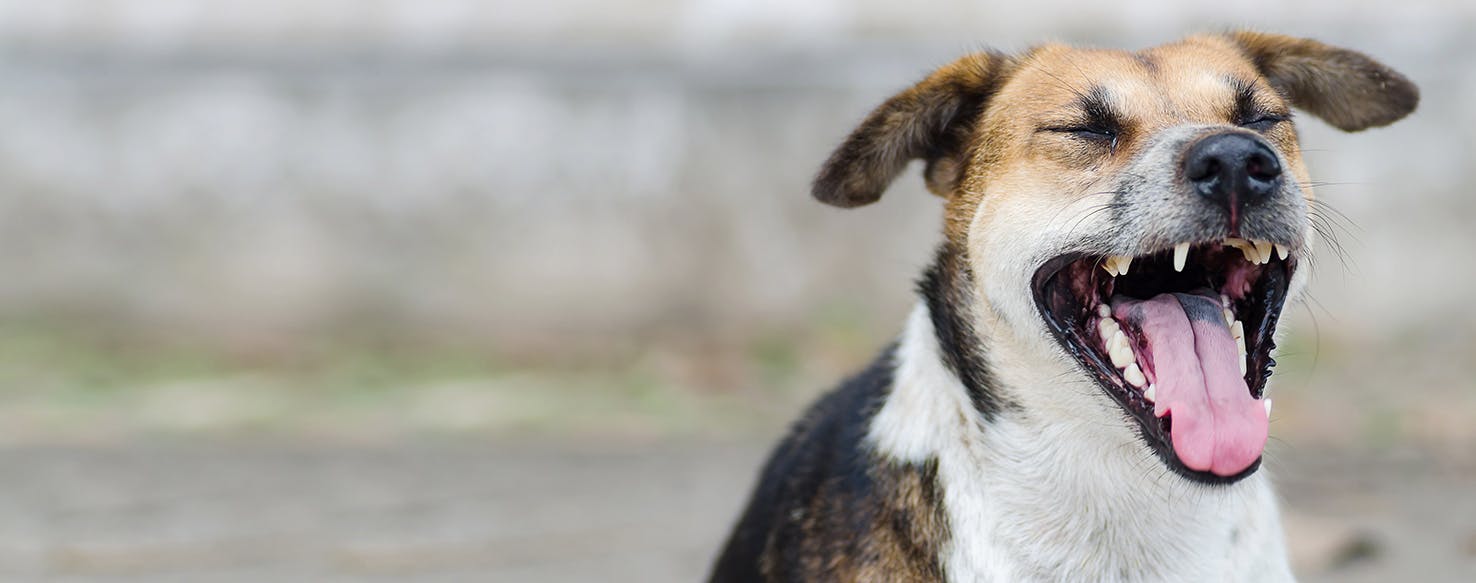The assembled audience is hushed. The curtain is about to go up, the silence is palpable ...and you hiccup. In the quiet of the auditorium, your hiccups echo around like a shout in the Grand Canyon. People titter. Oh dear, how you wish the ground would swallow you up.
We've all had hiccups, albeit not in such an excruciatingly public way. A fit of the hiccups is perfectly normal and part of the human condition...a bit like laughing...but without being in control.
Indeed, the reason for those involuntary spasms of the diaphragm (the shelf of muscle separating the chest from the belly) is a mystery. For people, lots of theories have been put forward, but no one knows the answer for sure.
But what about dogs?
Can Dogs Get Hiccups?
YES!
This is especially true of puppies, who hiccup in the most delightfully cute way that has you reaching for the camera. But should you be reaching for the phone to call the vet instead? Probably not!
Does My Dog Have Hiccups?
Characteristic of hiccups is that jerking breath sound for which 'hic-cups' are named.
The causes of hiccups are shady at least. Several ideas have been put forward for people, not all of which are appropriate for dogs. These include:
-
Eating too quickly
-
An overfull stomach
-
Sudden change of air temperature (Going from a hot room out into the snow)
-
Sudden change of temperature in the stomach (Eating a hot meal followed by an ice cube)
-
Swallowing air as a result of sucking behavior
-
Stress or anxiety
Hiccups are usually self-limiting and usually go after a short time. If you are concerned about your pup's hiccups, then video an episode. That way you have something to show the vet, who can then tell you if things need to be taken further or not.
Conditions that can sometimes be mistaken for hiccups include:
Follow the links above for more information or to ask the advice of our in-house vet.
How Do I Treat My Dog's Hiccups?
Cuddles! If your pup has hiccups then a little tender loving care goes a long way to keeping them calm and helping the hiccups to abate. Let's face it, any excuse for a cuddle is a good one.
On a more serious note, it's a good idea to try and slow down greedy eaters, as a stomach full of air is a bad idea. Puzzle feeders are great for this or try putting his meal split up into mouth sized portions in a muffin tin.
Likewise, avoid your pup getting an overfull stomach. If he looks bloated after a meal, then feed less at each sitting but give meals more frequently.
How Are Hiccups Similar in Dogs and Humans?
The same mysteries apply to dogs as apply to people. Indeed, it is babies and puppies who get hiccups the most, and there is a theory it helps get rid of gas and reduces colic.
In both two and four-leggers, hiccups are caused by a jerking contraction of the diaphragm - the muscle separating the chest and abdomen. This sudden change of pressure causes forced closure of the larynx, which is what's responsible for the hiccup noise.
How Are Hiccups Different in Dogs and Humans?
People smoke and drink (which hopefully dogs don't do) which are thought to be two contributing factors in people.
Also, dogs are best left to get over their hiccups of their own accord. Human strategies such as a sudden shock are definitely NOT recommended for dogs. You are liable to startle them in an unpleasant way which could make them fearful or even trigger anxiety issues.
Indeed, whereas the patented 'cure' in people is drinking from the wrong side of a tumbler through a piece of kitchen paper...it is a rare dog who can manage to do this, so leave well alone.
Case Study
Lucky is an adorable black Labrador pup. He regularly gets hiccups after eating, which has the family scurrying for their camera phones. However, Lucky's owner starts to wonder if she should be more worried than she is and phones the vet.
The vet asks some questions and is reassured that Lucky is happy and healthy in all respects. She suggests giving the same amount of food each day, but split into four meals instead of three.
On this new regime, Lucky's hiccups disappear as mysteriously as they arrived. Everyone is happy, if a little disappointed there will be one less cute puppy hiccup video on YouTube.


